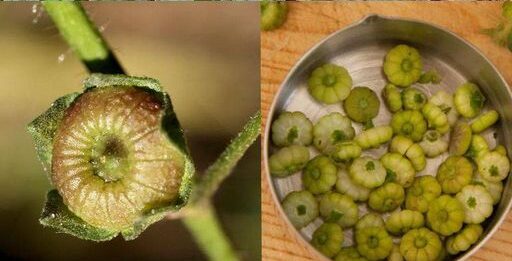
Common mallow plants, particularly Malva neglecta and Malva sylvestris, have been used in traditional medicine for centuries. Although they are different species, both share notable medicinal properties and uses. This article explores the health benefits and uses of these plants and provides insight into their use in modern natural healing practices.
Malva Neglecta: The inconspicuous healer
Malva neglecta, commonly known as cheeseweed, thrives in a variety of environments. This plant is characterized by a low growth habit, a deep taproot and circular to kidney-shaped leaves. Every part of Malva Neglecta is edible, adding to its versatility in medicinal and culinary uses.
- Digestive aid : The plant acts as a gentle laxative, calms the digestive tract and helps treat constipation.
- Anti-inflammatory : Malva Neglecta is known for its anti-inflammatory properties, making it excellent for treating urinary tract infections and kidney problems.
- Respiratory relief : As an expectorant, it helps relieve coughs and other respiratory problems.
Malva Sylvestris: The versatile herb
Malva sylvestris or common mallow is known for its attractive flowers and has a wider range of uses. This plant is a self-fertile hermaphrodite that can thrive in harsh conditions.
- Respiratory health : Malva sylvestris is effective in treating respiratory diseases, relieving chest congestion and soothing the throat.
- Digestive Benefits : Acts as a mild laxative and helps regulate the digestive system.
- Skin care and anti-aging : When applied topically, it has potential anti-aging effects and keeps the skin youthful.
- Sleeping aid : The essential oil or tea is used for relaxation and to improve sleep quality.
- Cancer Prevention : Contains beta-sitosterol, which is associated with the prevention of prostate cancer.
Culinary applications
Aside from their medicinal benefits, both Malva Neglecta and Malva Sylvestris have culinary uses. The leaves and flowers can be incorporated into salads, soups and other dishes and provide a nutritional boost.
Safety and precautions
Although both plants are generally safe, it is important to consult a doctor before using them, especially if you are taking other medications or have any health problems. Pregnant or breastfeeding women should exercise caution.

Malva Neglecta and Malva Sylvestris are not just beautiful plants; They are reservoirs of health benefits. From supporting digestion to respiratory health to potential cancer prevention, these plants are a testament to the power of natural remedies. Their ease of cultivation and diverse uses make them valuable additions to any herbal medicine cabinet.
Inspired by that? Share the article with your friends!
